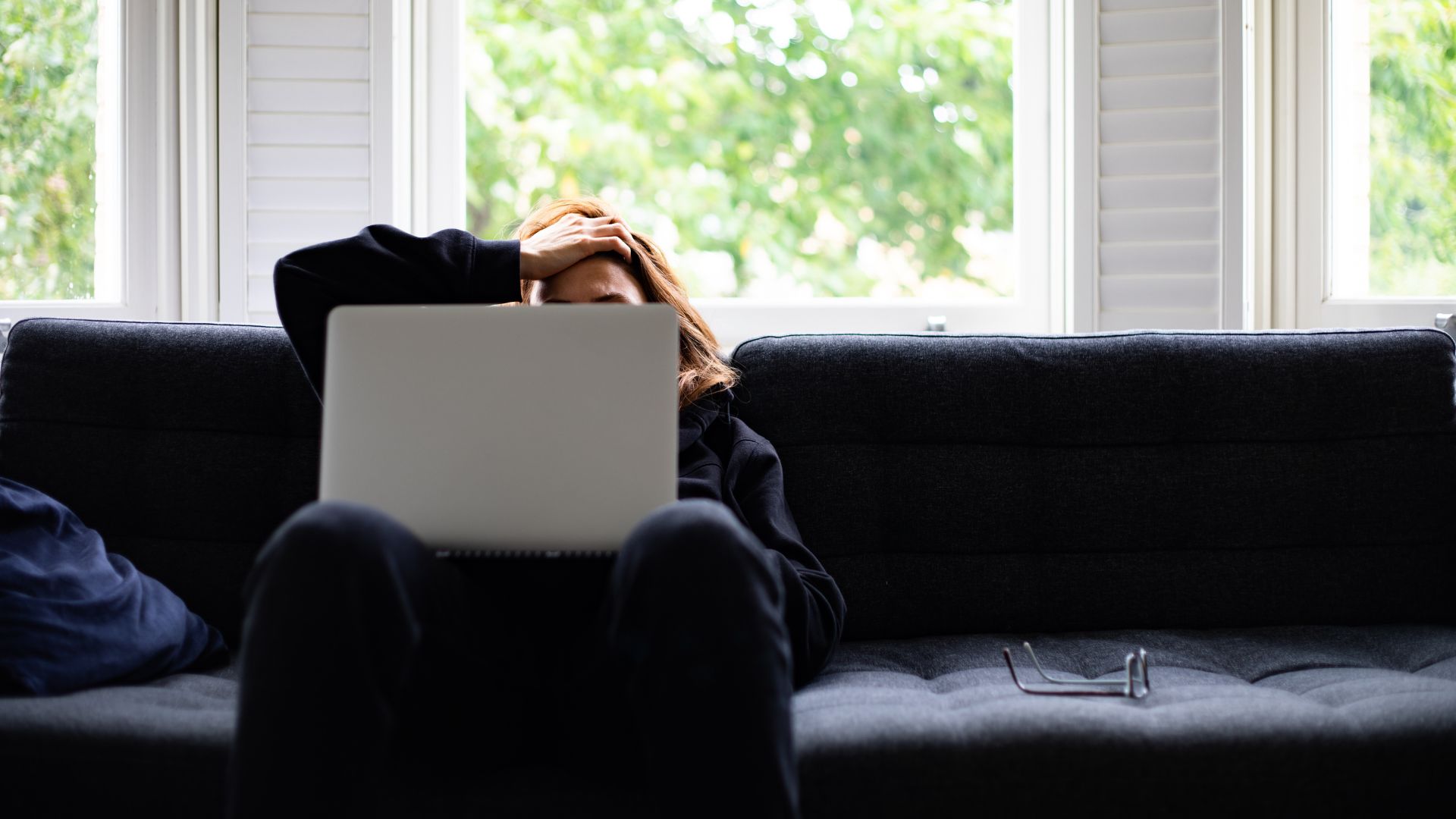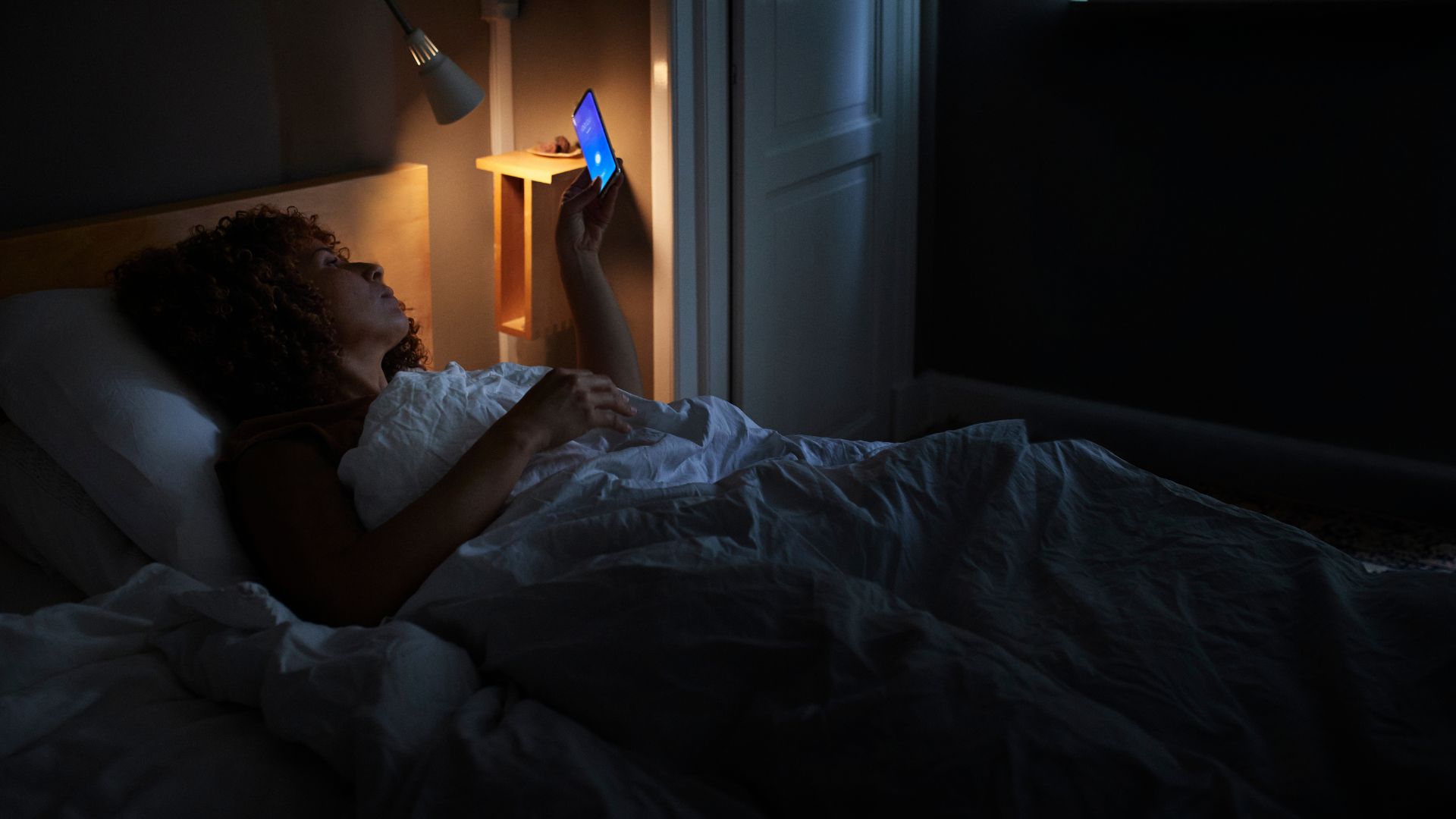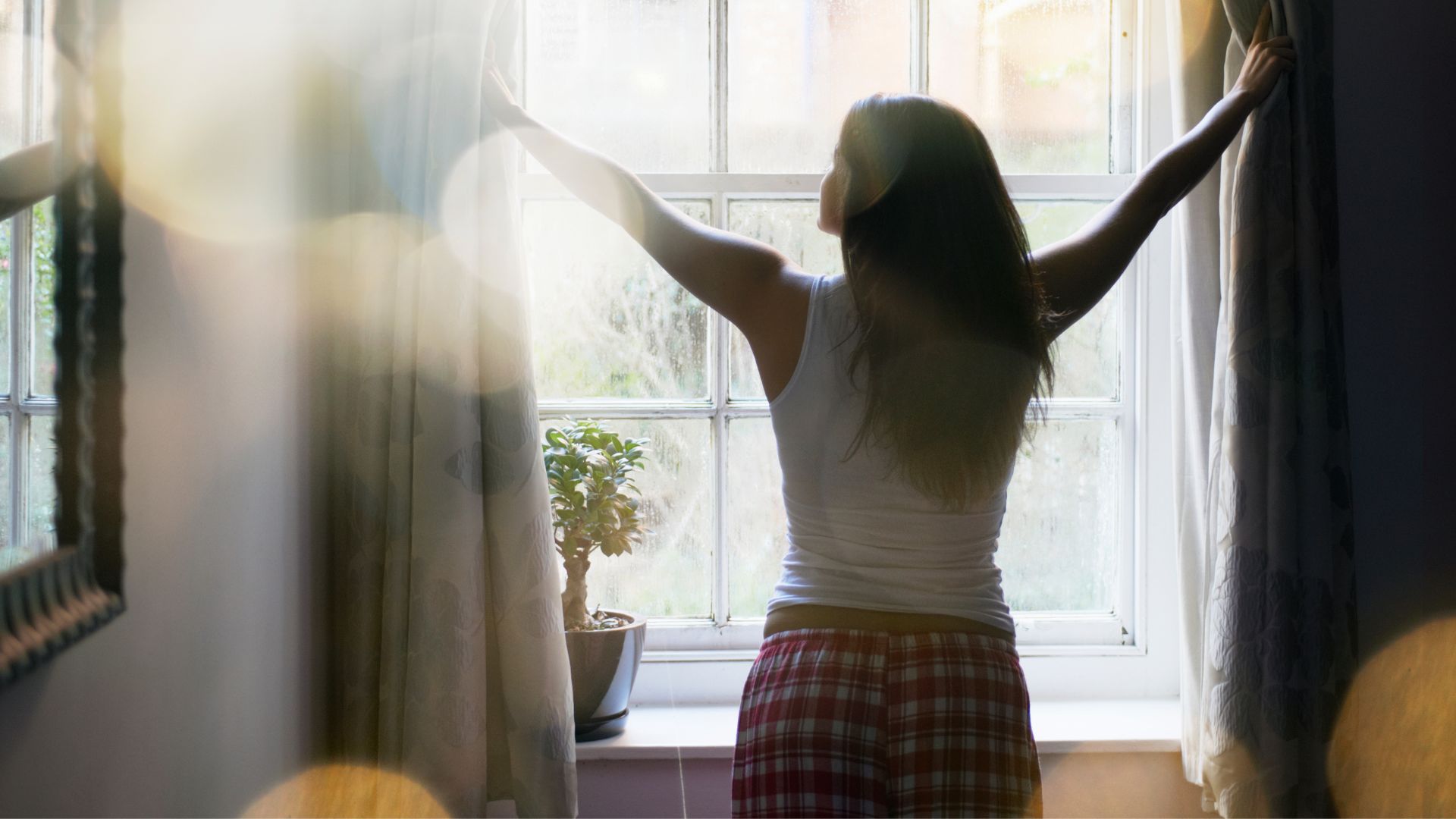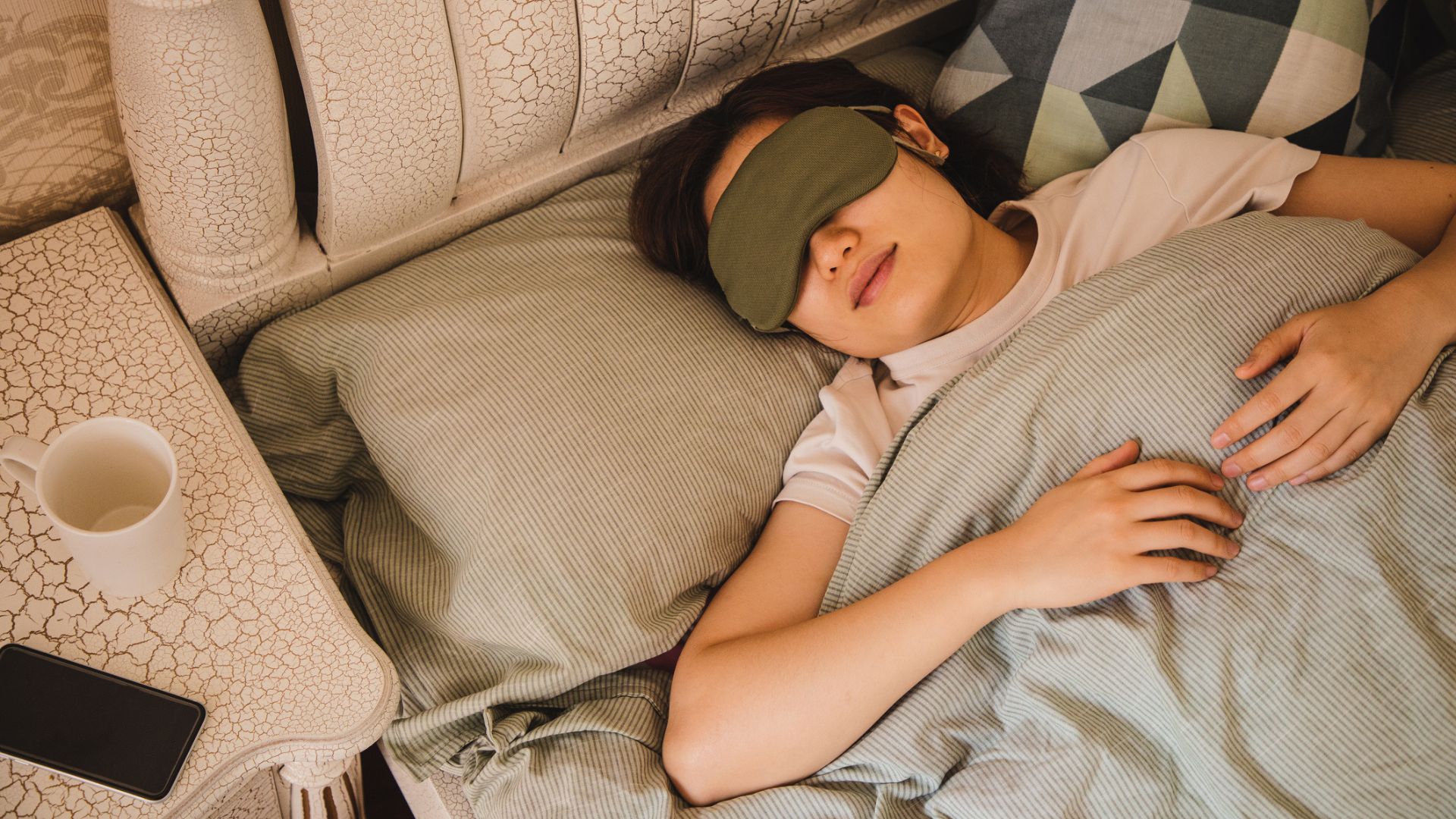Why do I keep waking up early? 8 reasons why you can't stay asleep
If you keep waking up early, this is what three sleep experts want you to know, plus how to fix it


Why do I keep waking up early? As the seasons shift, it's the question we're all asking ourselves. While most of us have to get up early in the morning at least occasionally, there's nothing more frustrating than waking up hours before you have to get out of bed and then not being able to get back to sleep.
Sometimes there are serious reasons behind those early 4 am or 5 am wake-up times, including conditions like insomnia, but luckily most of the time the reason we keep waking up early has more to do with our natural sleep cycles and sleep hygiene than anything else.
So whether you just want tips on how to sleep better in the mornings or you want to entirely revamp your bedtime routine, here, three sleep experts tell woman&home everything there is to know about waking up early and how to avoid it the next time you want a lie-in.
Why do I keep waking up early?
If you consistently keep waking up early in the morning then your circadian rhythm is disrupted. This is the 24-hour cycle dictated by the master clock, otherwise known as the circadian pacemaker, which is located in the brain's hypothalamus, research by the University of Harvard explains. During the day, this clock sends signals to keep us awake and at night, the clock stimulates the release of a sleep hormone called melatonin and should continuously send signals through the brain to keep us asleep to the morning.
However, this part of the brain is incredibly sensitive to different factors and so the smallest change in light or temperature can wreak temporary havoc on the internal body clock. From insomnia to bad sleep habits, here's why you could be waking up too early in the morning.

1. You're suffering with anxiety
Anxiety is one of the biggest reasons why almost 35% of us struggle with waking up through the night, according to research by Stanford University School of Medicine.
"Anxiety activates our fight or flight system," explains Dr Guy Meadows, a sleep psychologist. "This state is ideal for fighting off approaching danger because it makes us hyper-alert and awake, which is exactly why it is not great for sleep. Scientists suggest that around 70% of those with anxiety disorders also suffer from insomnia, so this could be a double issue."
Sign up to our free daily email for the latest royal and entertainment news, interesting opinion, expert advice on styling and beauty trends, and no-nonsense guides to the health and wellness questions you want answered.
However, as Dr Meadows explains, our bodies also naturally release cortisol to help wake us up in the morning as part of the circadian rhythm, called the cortisol awakening response. Along with a higher risk of insomnia, research from the Medical University of Gdansk shows those with anxiety have higher morning cortisol levels and so would be naturally more prone to a disrupted circadian rhythm and waking up earlier in the morning.
2. You're experiencing age-related changes to your sleep pattern
As we get older, the number of hours we can sleep for reduces. "One contributing factor for this is the reduction in levels of the sleep hormone melatonin," explains Dr Meadows, who is also the co-founder of The Sleep School, an organization that runs various programs to help those struggling with sleep. "This reduces the robustness and consistency of the brain's internal body clock, which is essential for regulating the timing of our sleep. This means our natural sleep-wake cycles often become less regular the older we get."
We're more likely to wake up through the night, wake up earlier in the morning, and to feel tired throughout the day as a result.
3. You have insomnia
If you keep waking up early in the morning then you could be suffering from insomnia, as it's a very common sleep disorder where people have issues with either falling asleep or staying asleep, explains Dario Dornbierer, a pharmaceutical scientist with a special interest in sleep psychopharmacology. "Maintenance insomnia is characterized by early morning awakenings and being unable to return to sleep," he adds.
Generally, insomnia can be divided into two categories: Acute insomnia, which tends to last for a couple of days or weeks and is brought on predominantly by stress, or chronic insomnia, which is a longer-term health condition that may cause sleep problems for at least three weeks or more.
Symptoms of insomnia to look out for include:
- Falling asleep initially and then waking up during the night (acute)
- Waking up earlier in the more than desired (acute and chronic)
- Problems falling asleep and waking up in the middle of the night (chronic)
- Not being able to get back to sleep (chronic)
- Feeling tired during the day (chronic)
- Being irritable (chronic)
- Depressed mood (chronic)
- Problems maintaining concentration and memories (chronic)
However, it's also important to be aware that insomnia can be a symptom of a more serious condition itself. A review by the University of Pittsburgh School of Medicine, for example, found that insomnia was related to various adverse health conditions, including chronic pain, gastrointestinal disorders linked to anxiety and gut health, cancer, psychiatric issues including bipolar disorder, and other sleep-related conditions like sleep apnea.

4. You're going through menopause
Along with night sweats and fatigue, unfortunately waking up too early in the morning is one of the more typical menopause symptoms. "The decline in estrogen and progesterone levels causes a myriad of symptoms, including hot flashes, sweats, and psychological distress," says Dornbierer, who also works with B-Sync, the world's first clinically proven wake-up supplement.
"Likewise, many women experience sleep loss, and falling asleep or maintaining restful sleep becomes a challenge. In particular, hot flashes at night can trigger awakenings and make it difficult to get back to sleep. The hormonal changes can also result in overactivation of the body’s stress system, causing psychological irritability, restlessness, and menopause-related anxiety."
These changes are likely to cause issues earlier in the morning rather than in the middle of the night because sleep during these hours is easily-disrupted anyway. "Roughly speaking, sleep can be divided into two distinct sleep stages, deep sleep, and REM sleep. While deep sleep predominantly occurs in the first half of the night, the second half of the night is mainly characterized by REM sleep," Dornbierer says. "While REM sleep plays an essential role in maintaining mental and physical health, it is a more superficial stage of sleep compared to deep sleep, and so more prone to disturbances. This is why awakenings are more likely to occur during REM sleep in the early morning hours."
5. You're circadian rhythm is misaligned
Circadian misalignments can happen for a whole number of reasons but those who work in shifts and long-distance travelers are most commonly affected, so if you've been on a trip recently and are suffering from jet lag, you could be experiencing this problem too. "Likewise, switching from summer to wintertime often results in misalignments of the inner clock, such that people get up earlier than they should," Dornbierer says.
"The circadian rhythm is a complex internal body clock that regulates a set of time-dependent physical, mental and behavioral processes. As such, an individual’s sleep-wake cycle is regulated by the circadian system," he explains. "When sleeping and waking habits do not correspond to this internal clock, circadian misalignments may occur, which in the long run can lead to numerous physical and mental symptoms."
6. You're feeling stressed
For the same reasons that anxiety makes it hard to sleep through the night, stress can also have a huge impact on your sleep schedule. Dr Lindsay Browning, a psychologist and neuroscientist, explains more. "The hypothalamic-pituitary-adrenal (HPA) axis signals the adrenal glands to produce steroid hormones called glucocorticoids, two of which are cortisol and adrenaline, and both these are designed to keep you awake," says Dr Lindsay Browning, a psychologist and neuroscientist.
This is an entirely natural process, part of the flight or fight response, and we need it to be able to wake up effectively in the morning normally as the HPA axis also helps coordinate your sleep cycles. "But means when it is preoccupied with sending signals for the production of cortisol and adrenaline during periods of stress, it isn’t focusing on sleep. This results in insomnia when the HPA axis is disrupted through stress and other sleep disturbances, which affects your ability to sleep longer," she says.
It's particularly a problem in the morning, Dornbierer adds, which is why many people experiencing stress tend to struggle particularly with staying asleep through to the morning alarm. "REM sleep depends on the complete shutdown of adrenaline release, which is why increased adrenaline levels due to stress inhibit the formation of REM sleep and consequently leads to early morning awakenings," he says.
It shows just how innately stress and sleep conditions are linked, meaning that waking up early in the morning can also be a sign of serious stress disorders like habitual burnout. So if you are worried about the difference between normal temporary stress vs burnout, and you're struggling to stay asleep at night, speak to your doctor.

7. You've slept too much
For some people, sleeping too much is the opposite problem. However, if you've been dealing with a bout of cold, flu, or another condition that's kept you on the couch for the last couple of weeks, chances are your sleep is going to be affected when you recover.
"Have you ever wondered what makes us feel sleepier and sleepier as the day progresses? It's actually a brain chemical called adenosine, which builds up during the day," explains Dr Meadows. "The more adenosine is released, the more our sleep drive increases, and the sleepier we feel. Adenosine clears away as we sleep, which gradually makes us feel less and less sleepy until we wake up feeling refreshed. Most adenosine is cleared away within the first half of the night, which explains why we can wake in the early hours and feel wide awake and struggle to fall back to sleep."
8. You're having caffeine too late in the day
While a 3 pm caffeine boost is a common way to get through the afternoon, knowing how much caffeine is too much and avoiding it later in the day is essential if you keep waking up early. "Caffeine is a stimulant and makes it harder for you to fall asleep, or fall back to sleep after waking," says Dr Browning. "Importantly, caffeine has an average half-life of 5-7 hours. That means that 5-7 hours after your last cup of coffee, half of the caffeine is still in your system."
As well as not drinking coffee too late in the day, the psychologist warns against other caffeine-rich food and drink. "Caffeine is not only found in tea and coffee, but also in chocolate and soft drinks such as cola and energy drinks, including the sugar-free variety. If you have trouble falling asleep or staying asleep then it is recommended for you to have your last cup of caffeine of the day no later than around 2 pm," she says.
How to stop waking up early
If you keep waking up early in the morning because of conditions like insomnia, menopause, anxiety, or you're looking to learn how to recover from burnout because stress is keeping you from falling back to sleep, then you'll need to visit your doctor. However, in some cases, waking up too early is fixable with a change to your sleep environment, one of the best sleep aids, and kicking any bad sleep hygiene habits.
1. Change your sleep environment
It's a simple explanation but sometimes our environment, such as bright lights, loud sounds, or changing temperatures, wakes us up earlier in the morning as it sends signals to our internal body clock that it's time to wake up. Light is particularly key here, explains a study by the University of Basel, as sunlight is one of the key factors that influences the circadian rhythm, and nocturnal light has been found to alter circadian rhythms and sleep in humans.
"If your curtains are thin or poorly fitted, they can let sunlight into the bedroom. If we are exposed to sunlight in the early morning through thin curtains, even before our morning alarm, this makes it much harder to fall back to sleep again," explains Dr Browning. "When it's dark, we produce a sleep-promoting hormone called melatonin, but when we are exposed to bright light, we suppress the production of this hormone."
But overall, the conditions of your bedroom should promote relaxation and uninterrupted sleep, says Dornbierer. From picking the best direction for sleep to using one of the best sleep aids, here are the ways he suggests fixing your sleep environment so you stop waking up so early in the morning:
- Invest in a quality mattress, and comfortable pillows and bedding.
- Use blackout curtains or an eye mask to avoid outdoor night-time lights impacting the ability to sleep.
- Bring peace and calm to the bedroom, avoiding that noises disruptive sleep.
- Set the bedroom’s temperature between 18°C and 24°C.
- Use calming scents, such as lavender to improve restlessness and disturbed sleep.
2. Change your sleep routine
Having a good bedtime routine is an essential part of creating a healthy sleep routine, says Dornbierer. "It can dramatically improve sleep and, in essence, it involves setting a fixed time for going to sleep and waking up, and avoiding any drastic changes to your sleep schedule."
You'll also want to avoid naps post-3 pm and aim for between seven and nine hours of sleep, so working out the best time to sleep and wake up every day for you and your lifestyle is an important part of this.

3. Improve your sleep hygiene
Sleep hygiene is essentially a more scientific word for sleep habits. These habits, like looking at your phone before bed, are proven to make it harder for us to maintain healthy sleeping rituals and fall asleep naturally. For example, another study from the University of Basel found that blue light, which is the artificial light from our phones may increase the risk of circadian rhythm disorders.
To avoid this and stop waking up early in the morning, Dornbierer suggests:
- Avoid using electronic devices before bed: "Most computers, phones, tablets and TVs emit blue light, which negatively affects sleep and the circadian rhythm," he says. For a whole routine dedicated to this, check out our lowdown on the low dopamine morning routine taking over TikTok.
- Avoid stimulants: "Don't consume caffeine, alcohol, nicotine or any other stimulants before bed."
- Avoid big meals before bed: "They can cause indigestion, potentially disrupting sleep," Dornbierer warns.
- Workout in the morning: "Daily physical activity can improve sleep quality," he says. "But it's advisable to refrain from exercise close to bedtime, while light exercises like yoga can improve muscle relaxation and promote sleep."
- Learn how to deal with stress: "Practice stress management, including meditation techniques. While this is easier said than done, it can help to mitigate some of the symptoms of stress such as racing thoughts, eating more or less than usual, drinking or smoking more than usual, all of which combine to negatively affect sleep."
- Separate the bedroom space: "Reserve your bedroom for sleep and physical intimacy," he suggests.
What happens if you don't get enough sleep in the morning?
When it comes to sleep, it's recommended by both the experts, the CDC and the NHS that you get between seven to nine hours sleep. However whether you achieve that in the early hours of the evening and wake up earlier, or go to sleep later and sleep throughout the morning, that's up to you. "If a person gets a sufficient amount of restorative sleep, getting up early can be absolutely compatible with a healthy life," sleep specialist Dornbierer assures us.
"Preferred bed- and wake-up times vary a lot across individuals, a fact that is mainly driven by a person’s chronotype," he says. "The chronotype is the propensity for an individual to sleep at a particular time during a 24-hour period. A lark, or a morning person, is someone who usually gets up early in the morning and goes to bed early in the evening. By contrast, night owls and evening people are individuals who tend to stay up until late at night."

Grace Walsh is woman&home's Health Channel Editor, working across the areas of fitness, nutrition, sleep, mental health, relationships, and sex. She is also a qualified fitness instructor. In 2025, she will be taking on her third marathon in Brighton, completing her first ultra marathon, and qualifying as a certified personal trainer and nutrition coach.
A digital journalist with over seven years experience as a writer and editor for UK publications, Grace has covered (almost) everything in the world of health and wellbeing with bylines in Cosmopolitan, Red, The i Paper, GoodtoKnow, and more.